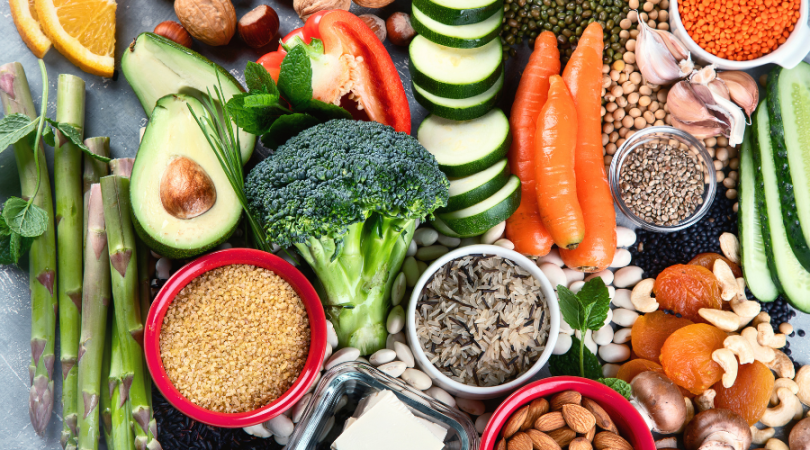Introduction
In recent years, the plant-based diet has gained immense popularity, not just as a trend but as a sustainable lifestyle choice. With increasing awareness about health, the environment, and animal welfare, more people are considering this dietary shift. A plant-based diet primarily emphasizes consuming whole, plant-derived foods while minimizing or eliminating animal products. This article explores the myriad benefits of a plant-based diet, from improved health markers to environmental sustainability.
What is a Plant-Based Diet?
A plant-based diet is one that focuses on foods derived from plants, including fruits, vegetables, legumes, nuts, seeds, and whole grains. While some people may choose to eliminate animal products entirely (veganism), others may simply reduce their consumption of meat and dairy products. The key here is to prioritize plant foods, which are packed with essential nutrients and health benefits.
Health Benefits of a Plant-Based Diet
Improved Heart Health
Heart disease remains the leading cause of death globally, with the World Health Organization (WHO) reporting that 17.9 million people die from cardiovascular diseases each year. A growing body of research suggests that adopting a plant-based diet can significantly reduce the risk of heart disease.
Studies indicate that plant-based diets can lower cholesterol levels, reduce blood pressure, and improve overall heart health. For instance, a study published in the Journal of the American College of Cardiology found that individuals following a plant-based diet had a 40% lower risk of developing heart disease compared to those consuming a standard American diet. The high fiber content in plant foods helps to lower cholesterol levels, while antioxidants found in fruits and vegetables combat inflammation, a significant contributor to heart disease.
Weight Management
Obesity is a pressing health issue, with over 42% of adults in the United States classified as obese, according to the Centers for Disease Control and Prevention (CDC). Many individuals struggle to lose weight, often due to the consumption of high-calorie, low-nutrient foods.
Research shows that individuals on plant-based diets tend to have lower body mass indexes (BMIs) compared to their meat-eating counterparts. This phenomenon can be attributed to the lower calorie density of plant foods, which are often high in fiber and water content. For example, a study published in the Journal of General Internal Medicine found that participants following a plant-based diet lost an average of 4.4 pounds more than those on a conventional diet over six months. Incorporating more fruits, vegetables, and whole grains into meals can help individuals feel fuller on fewer calories, making weight management more achievable.
Reduced Risk of Chronic Diseases
Chronic diseases, including type 2 diabetes, hypertension, and certain cancers, are on the rise globally. A plant-based diet has been linked to a lower risk of developing these conditions.
For instance, a study published in Nutrition Reviews found that individuals following a plant-based diet had a 23% lower risk of developing type 2 diabetes. The high fiber content in plant foods helps regulate blood sugar levels and improve insulin sensitivity. Furthermore, a meta-analysis published in the American Journal of Clinical Nutrition found that plant-based diets were associated with a 15% reduced risk of developing cancer. The antioxidants and phytochemicals found in fruits and vegetables play a crucial role in protecting cells from damage.
Nutritional Considerations
While a plant-based diet offers numerous health benefits, it is essential to ensure balanced nutrition. Some key nutrients to focus on include:
Protein: While many people believe that plant-based diets lack sufficient protein, there are numerous plant sources, such as lentils, chickpeas, quinoa, and tofu, that provide adequate protein levels.
Iron: Plant-based iron (non-heme iron) is less easily absorbed than animal-based iron. Consuming vitamin C-rich foods alongside iron sources can enhance absorption. Foods like spinach, beans, and fortified cereals are excellent options.
Calcium: Dairy is a common source of calcium, but there are plenty of plant-based alternatives, such as fortified plant milks, leafy greens, and almonds.
Omega-3 Fatty Acids: While fish is a common source of omega-3s, plant-based sources include flaxseeds, chia seeds, and walnuts.
Vitamin B12: This vitamin is primarily found in animal products, so individuals on a strict plant-based diet should consider fortified foods or supplements.
Practical Tips for Transitioning
Transitioning to a plant-based diet can be overwhelming, but it doesn’t have to be. Here are some practical tips to make the shift easier:
Start Slow
If you’re new to plant-based eating, consider starting with small changes. Begin by incorporating one or two meatless meals per week and gradually increase the frequency. This approach allows your palate to adjust and makes the transition less daunting.
Explore New Recipes
One of the most enjoyable aspects of a plant-based diet is discovering new recipes. There are countless resources available online, including blogs, YouTube channels, and cookbooks dedicated to plant-based cooking. Experimenting with new ingredients can make meals exciting and flavorful.
Join a Community
Finding support can make a significant difference in your journey. Consider joining a local or online plant-based community where you can share experiences, recipes, and tips. Engaging with others who share similar goals can provide motivation and encouragement.
Common Myths About Plant-Based Diets
Despite the growing popularity of plant-based diets, several misconceptions persist. Here are some common myths and the facts that debunk them:
Myth 1:
You Can’t Get Enough Protein on a Plant-Based Diet
Fact: Many plant foods are rich in protein, and a well-planned plant-based diet can easily meet protein needs.
Myth 2:
Plant-Based Diets are Expensive
Fact: While some specialty plant-based products can be costly, staples like beans, rice, and seasonal fruits and vegetables are often more affordable than meat and dairy.
Myth 3:
Plant-Based Diets Lack Variety
Fact: The world of plant-based eating is incredibly diverse, with countless cuisines and flavors to explore.
Recognizing Warning Signs of Nutritional Deficiencies
While plant-based diets can be healthy, it’s essential to monitor your health and recognize warning signs of potential deficiencies. Some common symptoms include:
If you notice any of these symptoms, consider consulting a healthcare professional or registered dietitian to assess your dietary intake and make necessary adjustments.
Conclusion
In conclusion, adopting a plant-based diet offers numerous health benefits, including improved heart health, effective weight management, and a reduced risk of chronic diseases. By focusing on whole, plant-derived foods, individuals can enhance their overall well-being while contributing positively to the environment.
If you’re considering making the switch, remember to start slow, explore new recipes, and seek support from communities. With the right approach, the transition to a plant-based lifestyle can be both enjoyable and rewarding. Embrace the journey toward better health and sustainability—one plant-based meal at a time.







